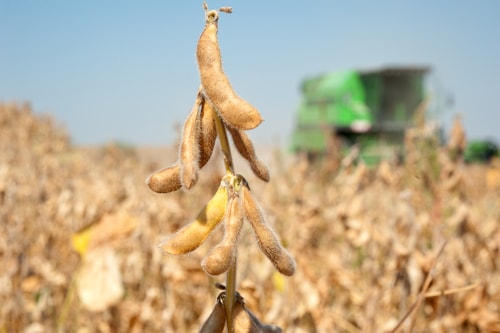Study revolved around soybean crush facility in Manitoba
By Diego Flammini, Farms.com
A recent study concluded that a new soybean crush facility in Manitoba could be a successful venture.
The study, conducted by Manitoba Pulse and Soybean Growers and Soy 20/20, with funding from the Growing Forward 2 estimates that, among the other benefits the facility could bring, it could contribute around $190 million per year when construction costs and job creation are taken into consideration.
"This new opportunity for Manitoba's agricultural processing industry will have benefits for farmers and the provincial economy as a whole, said Manitoba Agriculture, Food and Rural Development Minister Ron Kostyshyn. “Manitoba's soybean sector is now positioned to take the next step forward and this is an exciting time for the industry. The prospect of this new facility should also help spur even more innovation and investment in our province."

The facility, that’s estimated to be between five and seven years away would provide other benefits to Manitoba including an expanded local market for soybean growers, faster and more efficient transportation of soybeans and a new, local protein feed source for livestock farmers.
"We have an opportunity to provide more value to growers in Manitoba and it's always good to have an alternative market that doesn't rely on exports,” said Kyle Friesen, Chair of the Manitoba Pulse and Soybean Growers. We want to encourage local supply and demand to keep value-added processing in Manitoba to support jobs, the tax base and economic activity."
Manitoba is responsible for producing about 18% of Canada’s soybeans across about 1.25 million acres.
Tell us your thoughts about the possibility of a new soybean crush facility in Manitoba. As a soybean producer does it encourage you to have a local facility for processing?